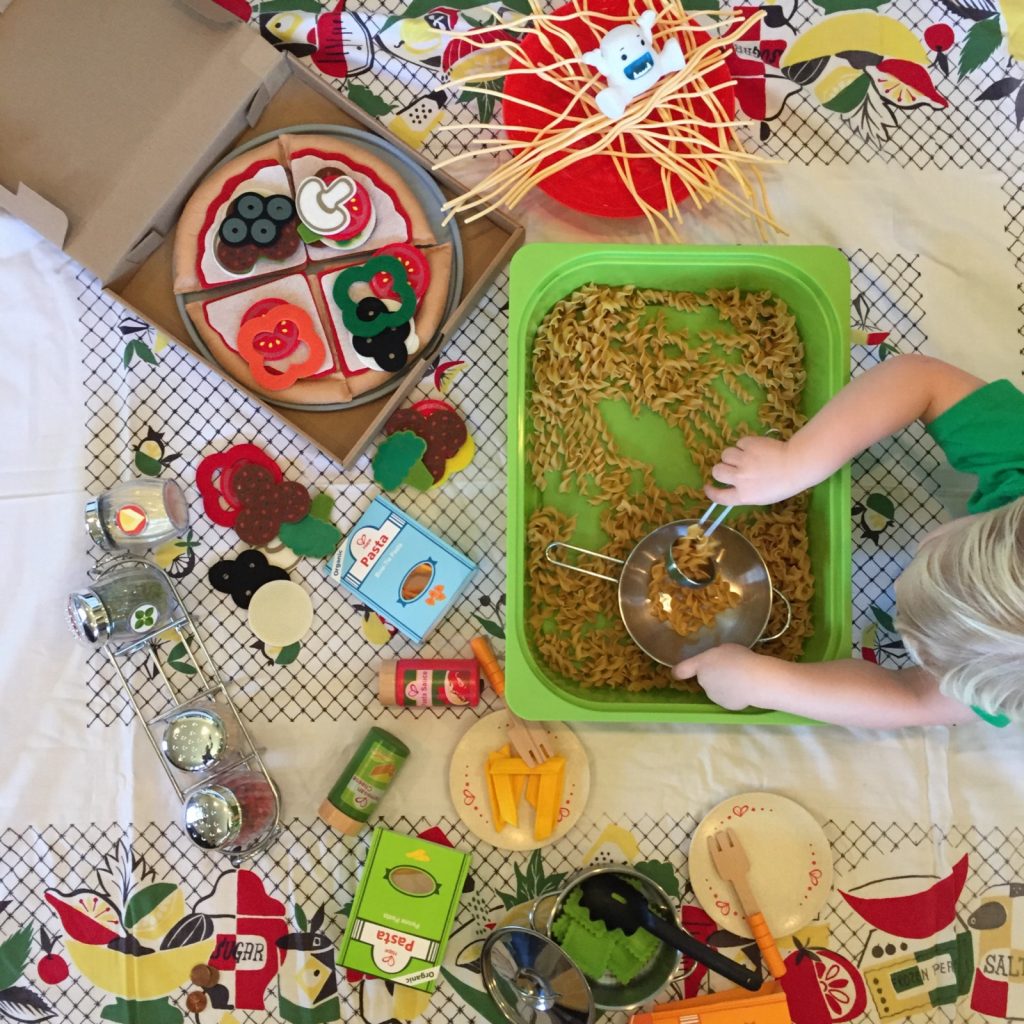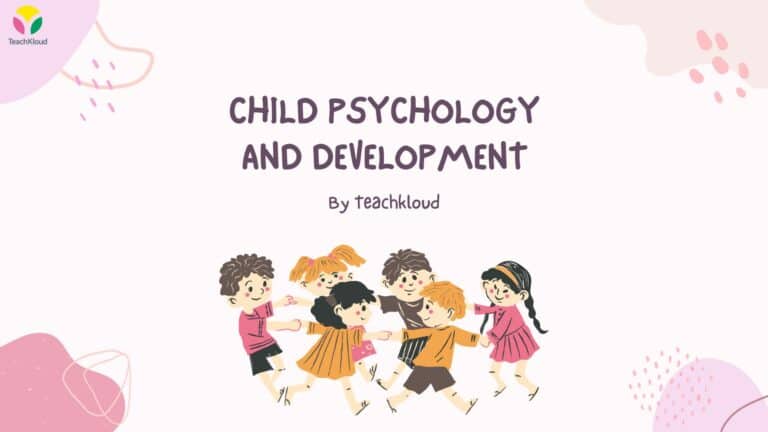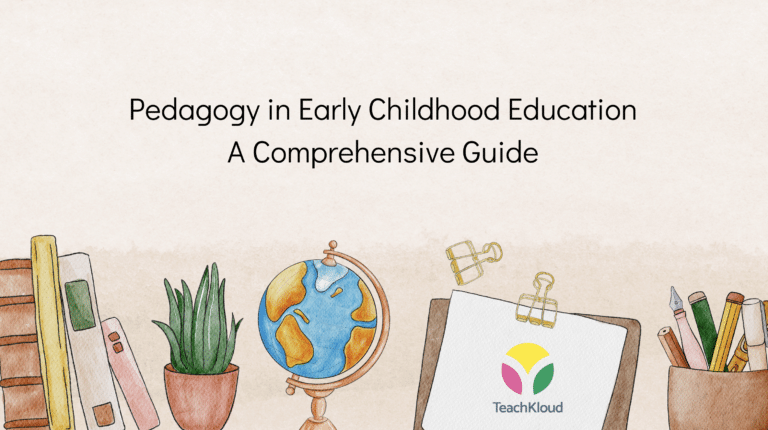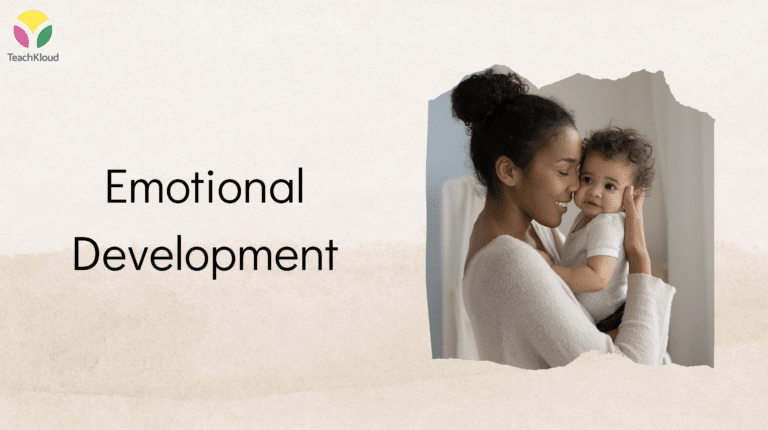Targeting Child Development Through Play
Author: @thespeechmom Facebook and Instagram
Targeting your child’s development through play can be overwhelming, frustrating, and feel somewhat like herding cats…but it can also be easy and fun! Follow these simple steps to make sure your little one is getting the most out of their enriched play!
- Choose a few toys and remove them from the rest. Explain to your child that they can choose anything they would like to play with. After they pick a few items, take them into another room — away from the shelves or bins of toys. Limiting the number of items they are playing with will encourage them to focus and interact with you for longer periods of time.
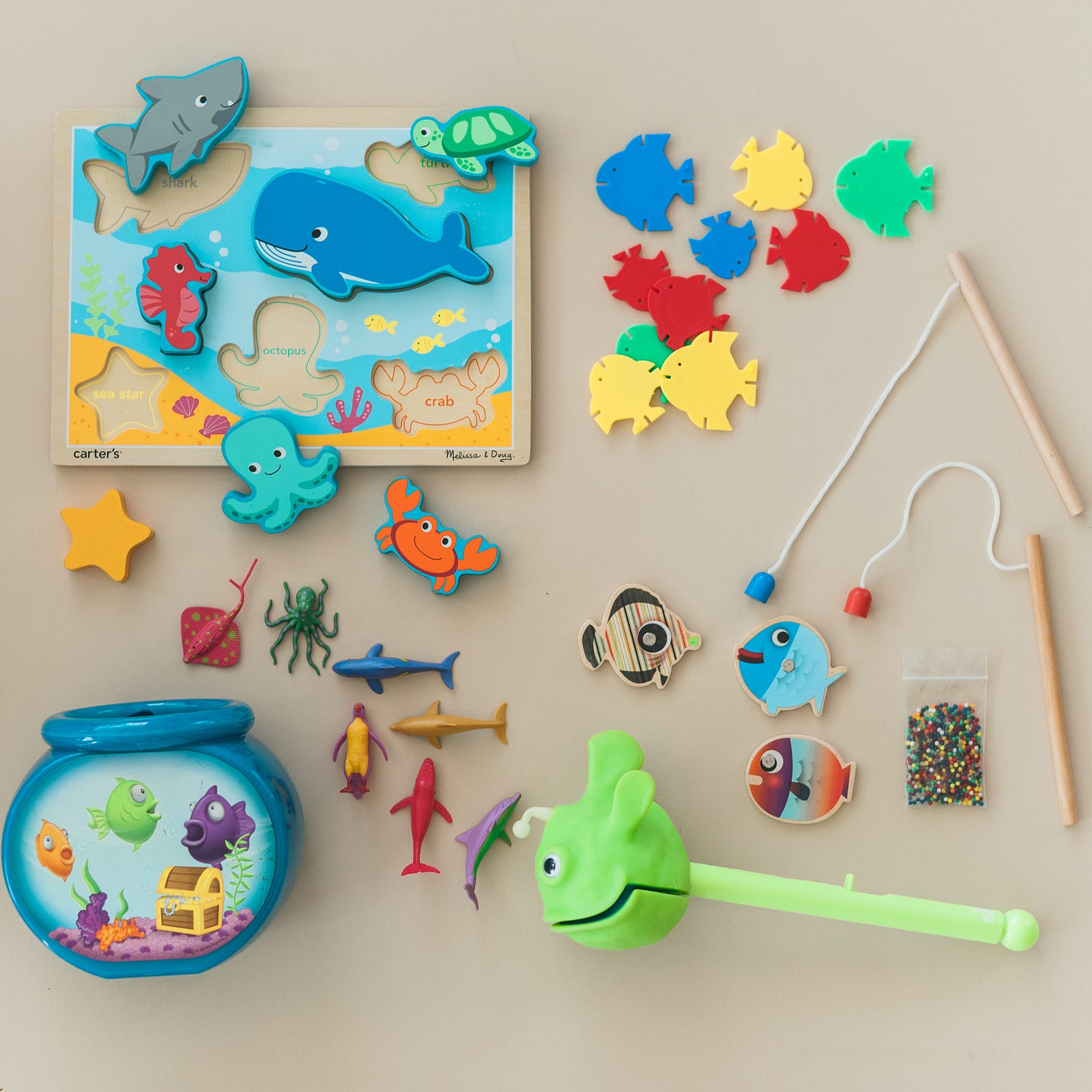
2. Comment — don’t tell. Commenting on your child’s play will keep them playing longer as well as teach them new words and concepts! When we instruct children how to play, we make them feel as if they are working — not playing. This in turn makes them lose interest quickly. When we comment on what our children are doing as they do it, we teach them by pairing the word with the action! As your child makes his truck climb a wall, say “up, up, up.” As your child stirs cupcakes, say “mix, mix, mix!” Doing while hearing is the best way for your child to learn!
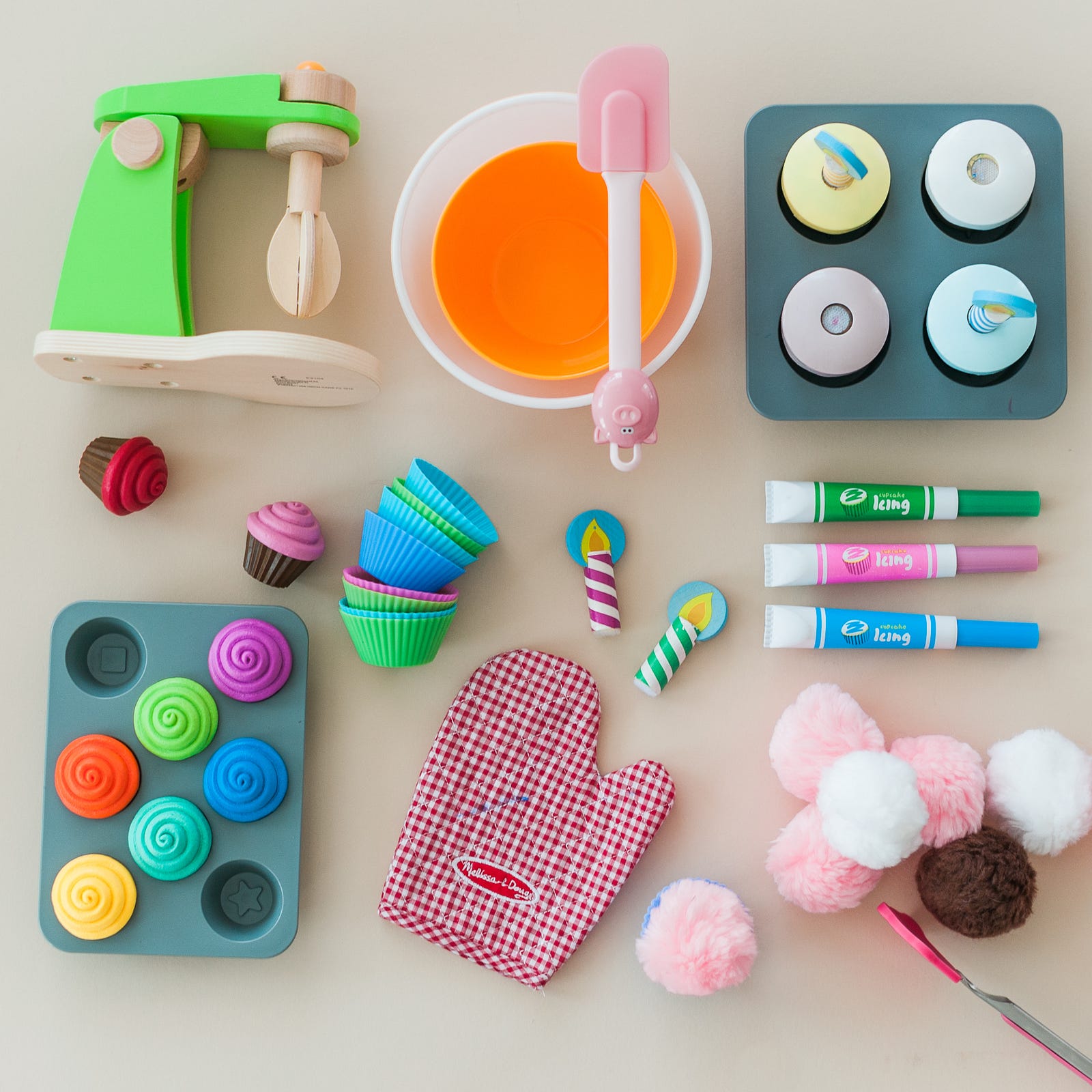
3. Keep it short. When you are commenting on your child’s play, keep your comments short and simple. “I really like how you put that red ball into the bucket” is not going to resonate with your child. But saying “Ball in” will! At 18 months, we like to see children understanding 2 to 4 word sentences. Keeping it simple will encourage learning of new vocabulary words while decreasing your child’s frustration!
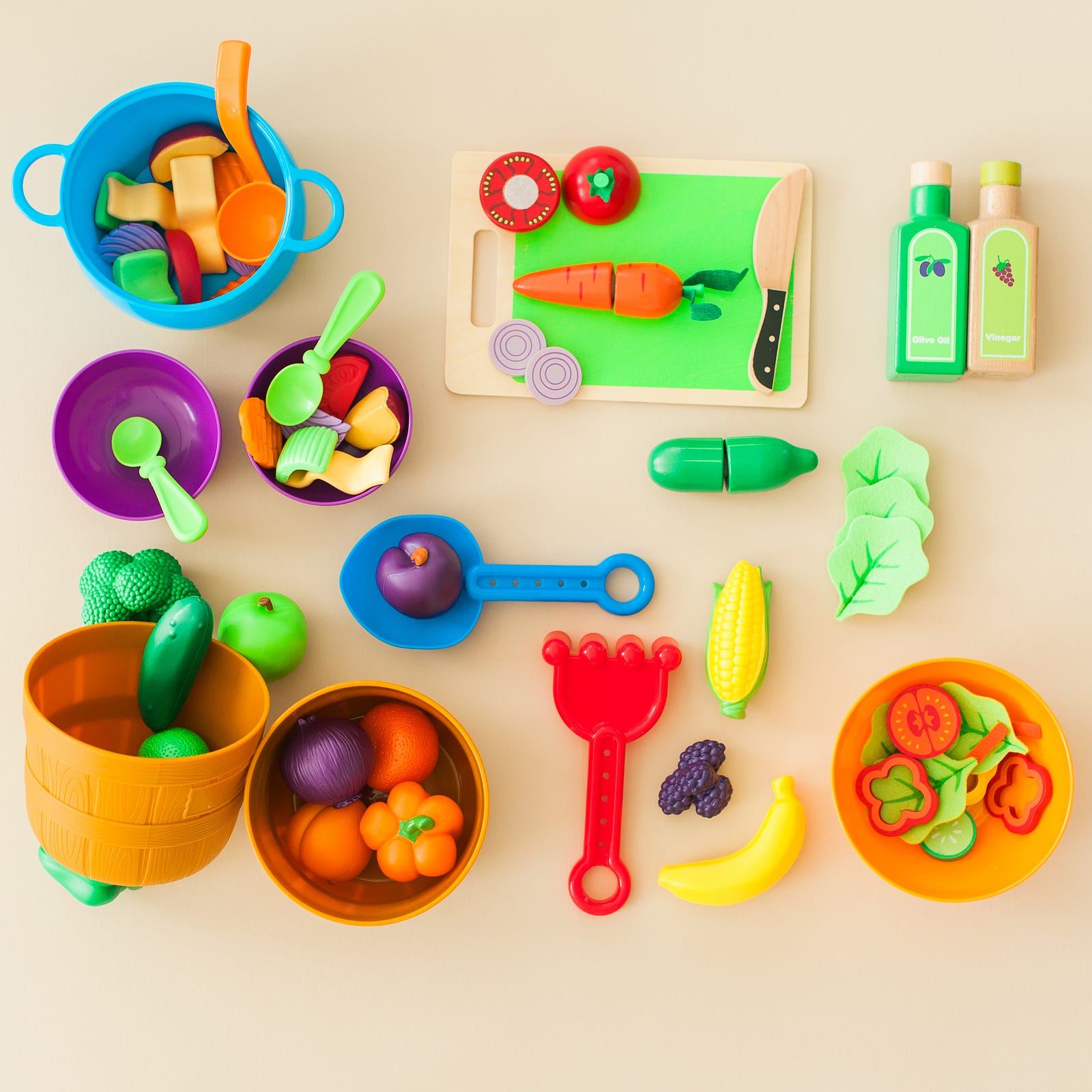
4. NO QUESTIONS! Do not ask your child questions while they play. Questions are not teaching tools, they are testing tools. Asking your child “What is the cow doing?” when your child does not typically say words like “eating” or “jumping” is not going to elicit an answer. What this will do is frustrate your child and discourage any further interactive play. Comment and model. Do not ask!
5. Repeat, repeat! If your child says a word, or maybe just attempts to say a word — repeat it! This not only validates their words, but provides them with an immediate model. When your child says “ba-ie” and points to his “baby,” you say “baby” and hand over that baby. Your child feels like they successfully communicated and will use this word again. Your child has also been provided with the correct pronunciation of the word without feeling like they did something incorrectly.
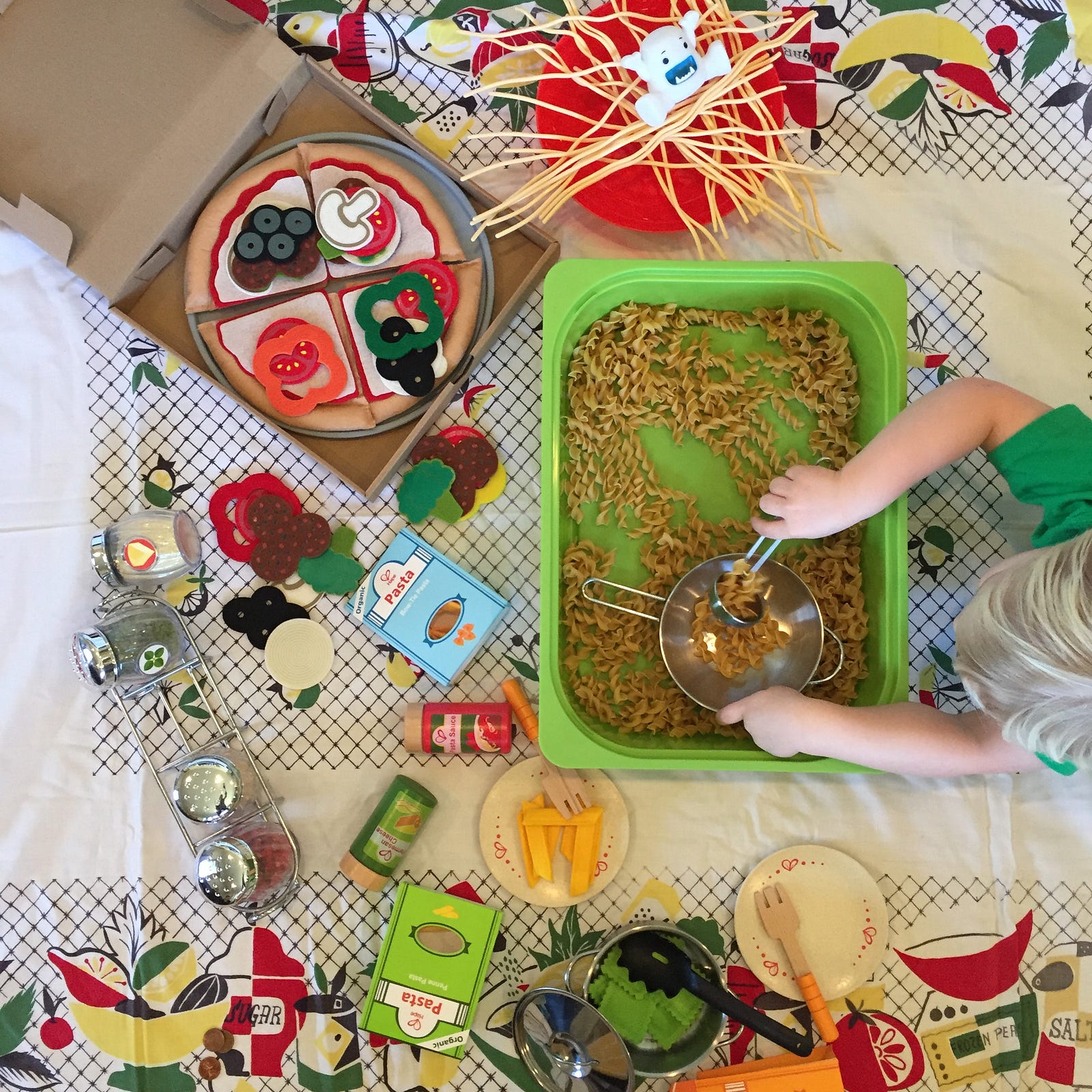
6. Expand. As your child begins to say words more frequently, continue to imitate their words — but expand on them also! When your child makes his horse jump, and says “horse,” respond by imitating and expanding. “Horse. Horse jumps!” By doing this you are providing your child with validation as well as with an example of how they can start to put more words together using words they already know!
7. Praise! Your child loves to be praised! Use verbal praise when your child talks, not objects. Withholding items from your child to encourage speech is unnatural and will typically discourage your child from continuing to play with you. “Good talking!” will get them excited to stay on track with play and language development!
Need more ideas on how you can play with your child? Hop on over to bloomandlearn.com to see how you can rent developmental enriching toys with activities guides to enhance language, social, sensory, cognitive, and fine motor development. Keep for a month and return — then get a new box! All the fun with none of the clutter! Use the code KLOUD10 to get $10 off your box!
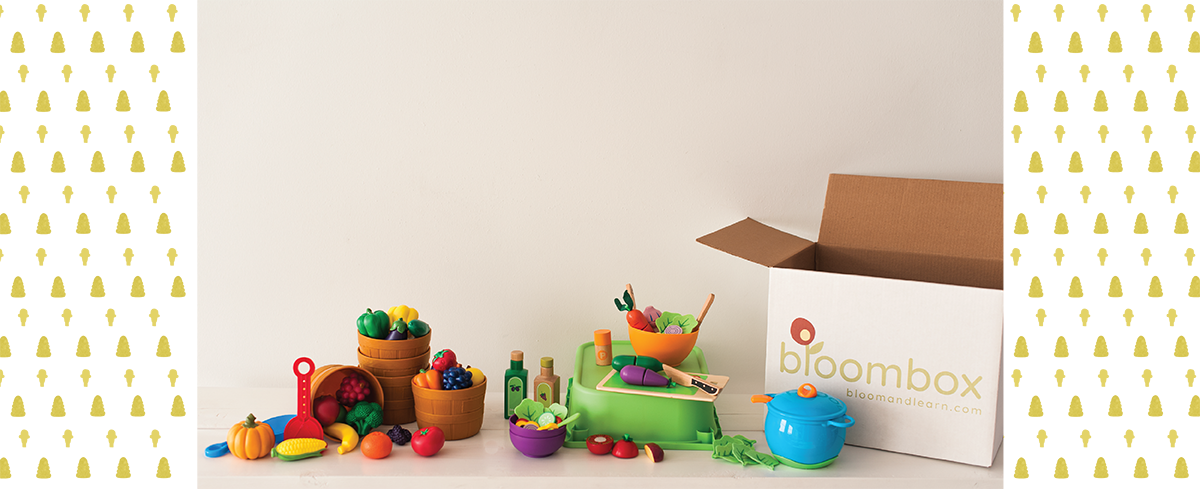
Want to learn more? Check out @thespeechmom on Facebook and Instagram
